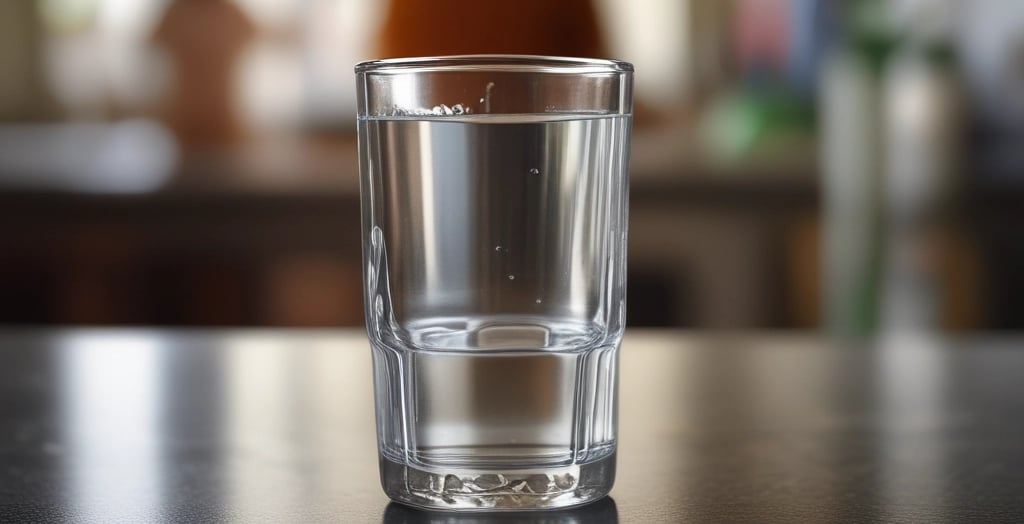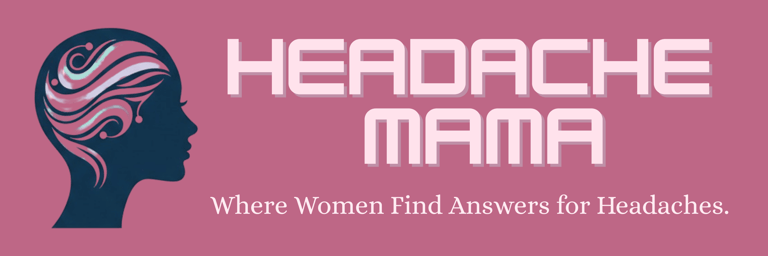Staying Hydrated: How Dehydration Affects Headaches
Even mild dehydration can trigger headaches. Learn why it happens, how to spot the signs early, and get simple hydration tips to keep pain away.
5/25/20254 min read


We’ve all been there: that dull throb starting in your temples, or perhaps a more intense pain that makes it hard to focus. As moms, juggling a million things, headaches can feel like an unwelcome, yet frequent, visitor. While many factors can trigger headaches – stress, lack of sleep, hormonal changes – one of the most common, yet often overlooked, culprits is dehydration.
What Exactly is Dehydration?
Simply put, dehydration occurs when your body loses more fluids than it takes in. This means your body doesn't have enough water and other fluids to carry out its normal functions optimally (Mayo Clinic Staff, 2023). Even mild dehydration can start to impact how you feel, and your head is often one of the first places to signal a problem.
The Dehydration-Headache Connection: How Does it Happen?
When you're dehydrated, your body tries to conserve water. This can lead to a few physiological changes that may trigger a headache:
Brain Shrinkage: Your brain is about 75% water. When you're dehydrated, your brain can temporarily shrink or contract slightly due to fluid loss. This can cause the brain to pull away from the skull, putting pressure on nerves and pain-sensitive membranes (meninges) that cover the brain, resulting in pain (Blau, 2005; Kleinschmidt & Wöber, 2007).
Blood Vessel Constriction: Dehydration can lead to a decrease in blood volume. To compensate, blood vessels, including those in the brain, may constrict. This reduced blood flow and oxygen to the brain can also contribute to headache pain (Adrogué & Madias, 2000).
Electrolyte Imbalance: Along with water, we lose electrolytes (like sodium and potassium) through sweat, especially during hot weather or exercise. An imbalance in these crucial minerals can also play a role in triggering headaches (Shirreffs & Sawka, 2011).
A dehydration headache often feels like a dull ache or throbbing pain, and it can occur at the front, back, side, or all over the head. It might worsen with movement, like bending over or walking. You might also experience other symptoms of dehydration alongside the headache, such as:
Thirst (though not always the first sign, especially in older adults or very busy moms!)
Dry mouth or sticky feeling in the mouth
Dark yellow urine or infrequent urination
Fatigue or lethargy
Dizziness or lightheadedness
Muscle cramps
Hydration Tips from HeadacheMama.com
The good news? Dehydration headaches are often preventable and treatable with proper hydration. Here are some practical tips to keep your fluid levels up:
Don't Wait for Thirst: Thirst is a sign that you're already on your way to being dehydrated. Aim to sip water consistently throughout the day.
Carry a Water Bottle: Make it your constant companion! Having water readily available is a great reminder. Choose one you love – maybe an insulated one to keep it cold, or one with time markers.
Set Reminders: If you're busy (and what mom isn't?), set alarms on your phone or use a hydration app to prompt you to drink.
Eat Your Water: Many fruits and vegetables have high water content. Include items like cucumber, celery, watermelon, strawberries, oranges, and spinach in your diet.
Hydrate Before, During, and After Exercise: If you’re working out, increase your fluid intake to compensate for sweat loss.
Flavor Your Water (Naturally!): If plain water feels boring, add slices of lemon, lime, cucumber, or berries. A splash of unsweetened fruit juice can also help.
Monitor Your Urine: Aim for pale yellow urine. Dark yellow or amber urine is a clear sign you need to drink more.
Consider Electrolytes (When Needed): For intense or prolonged exercise, extreme heat, or bouts of vomiting or diarrhea, an electrolyte drink or an oral rehydration solution can be beneficial to replenish lost salts. At HeadacheMama.com, we're currently researching the best options, and we'll soon be sharing our favorite electrolyte recommendations with you!
Be Mindful of Diuretics: Drinks like coffee, some teas, and alcohol can have a mild diuretic effect (meaning they make you urinate more). While moderate amounts are usually fine for most, ensure you're balancing them with plenty of water.
Start and End Your Day with Water: Have a glass when you wake up to rehydrate after sleep, and another before bed (though not too much if it disrupts your sleep!).
When to See a Doctor
While hydration can resolve many headaches, it's important to remember that not all headaches are caused by dehydration. If your headaches are severe, frequent, accompanied by other concerning symptoms (like fever, stiff neck, vision changes, numbness, difficulty speaking), or if they don't improve with hydration and rest, please consult your healthcare provider.
Staying adequately hydrated is a cornerstone of good health and can be a powerful tool in your headache management toolkit. By making hydration a priority, you can take a proactive step towards feeling your best.
References
Adrogué, H. J., & Madias, N. E. (2000). Hyponatremia. The New England Journal of Medicine, 342(21), 1581–1589. (While focused on hyponatremia, discusses fluid balance and neurological implications).
Blau, J. N. (2005). Water-deprivation headache: a new headache with two variants. Headache: The Journal of Head and Face Pain, 45(6), 724–728.
Kleinschmidt, A., & Wöber, C. (2007). Headache and Dehydration. In N. M. Ramadan (Ed.), Headache and Facial Pain (pp. 107-111). Cambridge University Press.
Mayo Clinic Staff. (2023). Dehydration. Mayo Clinic. Retrieved from https://www.mayoclinic.org/diseases-conditions/dehydration/symptoms-causes/syc-20354086
Shirreffs, S. M., & Sawka, M. N. (2011). Fluid and electrolyte needs for training, competition, and recovery. Journal of Sports Sciences, 29(Suppl 1), S39–S46.
Disclaimer: This blog post is for informational purposes only and does not constitute medical advice. Always consult with a qualified healthcare professional for any health concerns or before making any decisions related to your health or treatment.
Disclaimer
Content on HeadacheMama.com is for informational purposes only and is not a substitute for professional medical advice. Always consult your doctor.
contact@headachemama.com
© 2025. All rights reserved.
